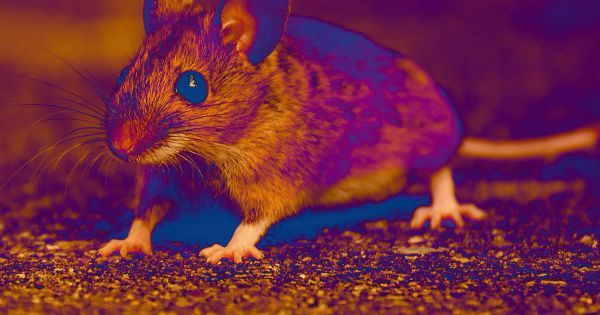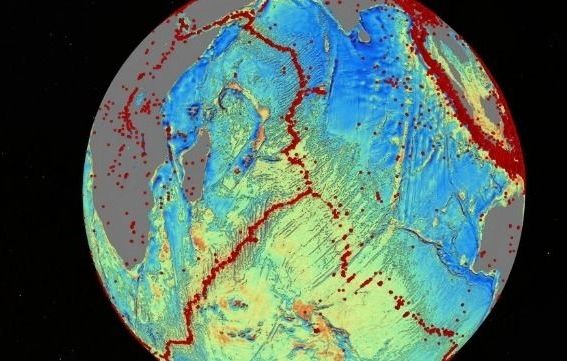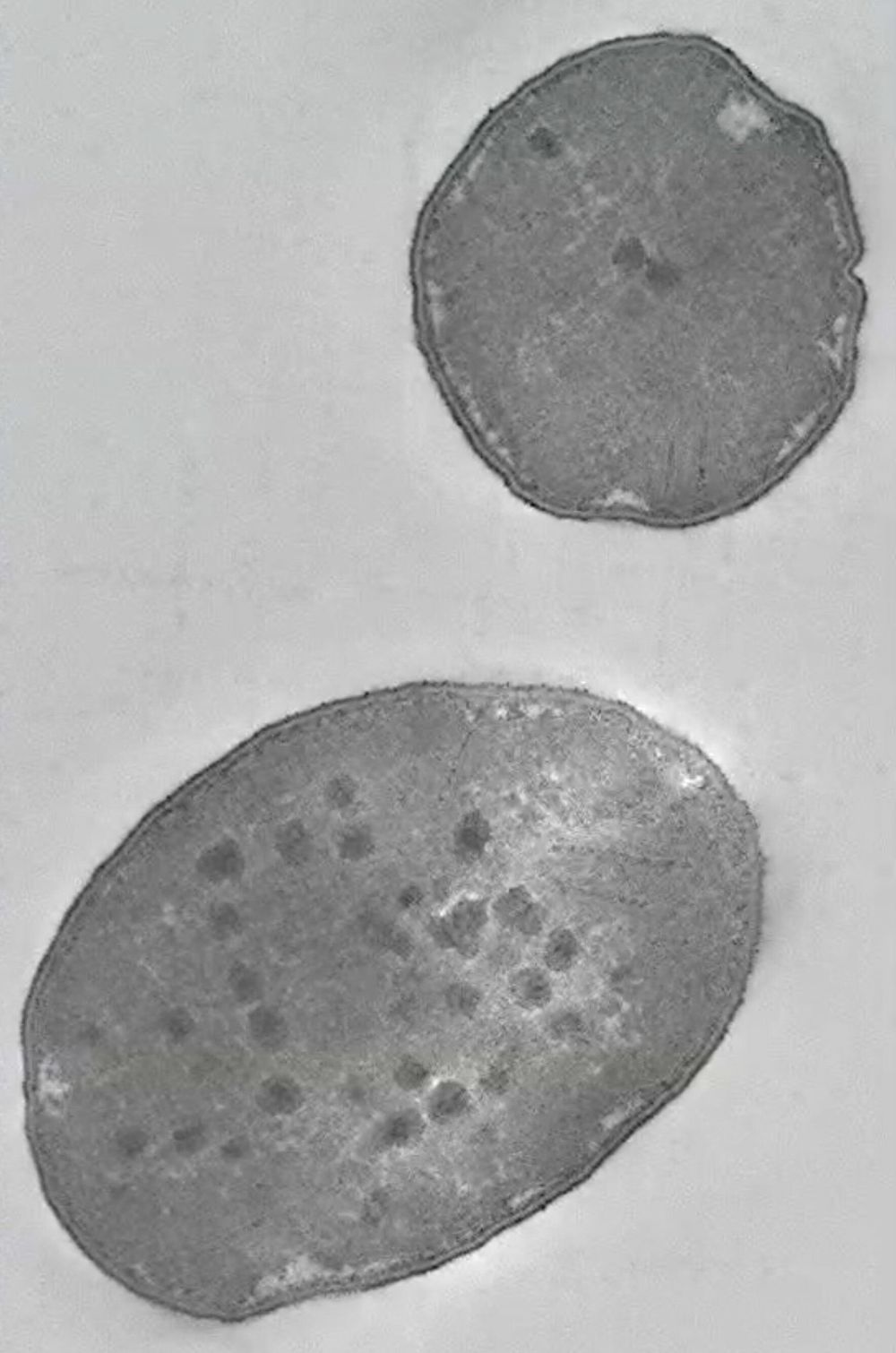Page 9459
Feb 8, 2019
This Star Trek–like replicator can create entire objects in minutes
Posted by Paul Battista in category: futurism
Feb 8, 2019
Are Intellectuals Suffering a Crisis of Meaning?
Posted by Xavier Rosseel in category: neuroscience
Ignorance is bliss, until it isn’t…,and it becomes experience.
“We fail our most cognitively talented students when we set them up for adult expectations that they must be high achieving, or we don’t help them find their own unique path to self-actualization and contribution to society. In today’s polarized world, with a general lack of nuance and open and honest critical discussions, I also think a very large number of intellectually gifted children are growing up knowing they are bright, but wondering: what for?”
What is the relationship between intellectual giftedness and meaning in life?
Continue reading “Are Intellectuals Suffering a Crisis of Meaning?” »
Feb 8, 2019
A New Cocktail of Proteins Makes Mice Regenerate Toes Like Lizards
Posted by Albert Sanchez in category: futurism
Feb 8, 2019
Volunteer to Help Build Artificial General Intelligence based on Human-like Emotions
Posted by Mark Larkento in category: robotics/AI
~ David J. Kelley
Essentially, we are asking for volunteers to be part of one or two of three groups that will help us conduct a cognitive function high-level study of a type of Artificial General Intelligence (AGI) based on a cognitive architecture termed the Independent Core Observer Model (ICOM). Yes, I realize this is a lot of complex technospeak, but if you want to really get technical you can refer to a glossary and references (at the end of this document)—but primarily, I’ll try to keep the details in a more non-AI scientist sort of language (meaning normal English).
That said, what you are volunteering for is, again, to be part of one or two out of three research groups that will perform a type of task depending on your ability to participate—and you get to select the group that works best for you. From our statistical standpoint, our resident research psychologist Dr. Amon Twyman) has stated that we need these groups to be a certain size to ensure that we can obtain even vague conclusions—so we need more help to ensure our pool size is large enough.
Feb 8, 2019
What.IfVideosWhat If Earth Orbited Betelgeuse
Posted by Michael Lance in category: space

Betelgeuse is 900 times larger than our sun and astronomers think it’s about to explode. What if Earth orbited this giant monster of a star?
Feb 8, 2019
Chronic rhinosinusitis linked to depression, anxiety
Posted by Xavier Rosseel in categories: biotech/medical, neuroscience
(HealthDay)—Chronic rhinosinusitis (CRS) is associated with incidence of depression and anxiety, according to a study published online Feb. 7 in JAMA Otolaryngology-Head & Neck Surgery.
Jong-Yeup Kim, M.D., Ph.D., from Konyang University Hospital in Daejeon, South Korea, and colleagues conducted a retrospective nationwide cohort study using population-based insurance data for 16,224 patients with CRS and 32,448 individuals without CRS, with propensity score matching between the groups. The incidence, survival rate, and hazard ratios of depression and anxiety were calculated for each group.
The researchers found that during the 11-year follow-up, the overall incidence of depression was higher in the CRS versus the non-CRS group (24.2 versus 16.0 per 1,000 person-years; adjusted hazard ratio, 1.54). Higher incidence of anxiety was also seen in the CRS versus the non-CRS group (42.2 versus 27.8 per 1,000 person-years; adjusted hazard ratio, 1.57). Compared with patients with CRS with nasal polyps, patients with CRS without nasal polyps had higher adjusted hazard ratios for developing depression (1.61 versus 1.41) and anxiety (1.63 versus 1.45).
Continue reading “Chronic rhinosinusitis linked to depression, anxiety” »
Feb 8, 2019
Navy-Funded Scientist Wins Award for Groundbreaking Seafloor Map
Posted by Genevieve Klien in category: military
Dr. David Sandwell, a geophysicist at Scripps, has been awarded American Geophysical Union’s Charles A. Whitten Medal for creating the world’s first comprehensive, high-resolution map of the ocean floor.
In a long-running project sponsored by the U.S. Navy’s Office of Naval Research, Sandwell combined satellite data with sonar measurements to develop a global depth chart of unprecedented detail. His work has charted thousands of previously unidentified mountains, trenches, and other features in the deepest and least explored parts of the ocean. The work is not only of academic interest: it provides crucial intelligence and scientific information for the Navy.
“Dr. Sandwell’s groundbreaking work provides the first high-resolution map of the ocean floor,” said Dr. Tom Drake, head of ONR’s Ocean Battlespace and Expeditionary Access Department. “This has opened new research areas for oceanography, marine geology and geophysics — critical topics for the U.S. Navy.”
Continue reading “Navy-Funded Scientist Wins Award for Groundbreaking Seafloor Map” »
Feb 8, 2019
Research suggests life thrived on Earth 3.5 billion years ago
Posted by Genevieve Klien in category: evolution
This study provides some of the first information regarding how robustly ancient life was metabolizing. Microbial sulfate metabolism is recorded in over 3 billion years of sulfur isotope ratios that are in line with this study’s predictions, which suggest life was in fact thriving in the ancient oceans. This work opens up a new field of research, which ELSI Associate Professor Shawn McGlynn calls “evolutionary and isotopic enzymology.” Using this type of data, scientists can now proceed to other elements, such as carbon and nitrogen, and more completely link the geochemical record with cellular states and ecology via an understanding of enzyme evolution and Earth history.
Feb 8, 2019
Two Pieces Of Technology That Will Change The World Over The Next Decade
Posted by Genevieve Klien in categories: internet, robotics/AI
How is the technological landscape changing in 2019, and what innovations will we see in the future? originally appeared on Quora: the place to gain and share knowledge, empowering people to learn from others and better understand the world.
Answer by Gary Shapiro, President and CEO at Consumer Technology Association, on Quora:
The two biggest stories coming out of http://www.ces.tech/” target=”_blank” rel=” nofollow noopener noreferrer” data-ga-track=” ExternalLink: http://www.ces.tech/”>CES 2019 are advancements in fifth generation cellular connectivity (5G) and artificial intelligence (AI). Both of these innovations will open the door to a world of convenience, precision and high-speed broadband.
Continue reading “Two Pieces Of Technology That Will Change The World Over The Next Decade” »
















